Are you leveraging the power of AI for interview preparation? In the competitive job market, Artificial Intelligence (AI) is becoming a pivotal tool for candidates. Offering personalized, data-driven insights, AI revolutionizes traditional interview prep methods. AI tools analyze extensive interview data, guide speech patterns, and simulate real interview scenarios, thus providing invaluable feedback. Consequently, this approach equips job seekers with sophisticated strategies, previously only accessible through extensive coaching.
However, the utility of AI in interview preparation isn’t without its challenges. Concerns include the depth of AI’s understanding of human nuances, the risk of overdependence on technology, and potential biases in AI algorithms. As we explore AI's role in reshaping interview prep, balancing its benefits with an awareness of its limitations is key. This post aims to give a holistic view of AI for interview preparation, emphasizing the importance of blending AI’s advanced capabilities with the irreplaceable insights of human interaction.
Understanding AI's Role in Interview Preparation: Why AI for Interview Prep?
The integration of AI into interview preparation marks a significant shift from traditional methods. AI tools are designed to analyze vast arrays of interview data, providing insights into frequently asked questions, desirable response formats, and key industry-specific skills. Moreover, this data-driven approach uniquely equips job seekers to practice and refine their interviewing skills based on real-world scenarios and feedback.
For example, tools like My Interview Practice and Pramp utilize AI to provide insights into frequently asked questions and response formats, making them invaluable assets for modern job preparation strategies. These platforms use sophisticated machine learning algorithms to dissect and interpret thousands of successful job interviews. Therefore, they help you understand not just what questions might be asked, but also how best to structure your responses for maximum impact.
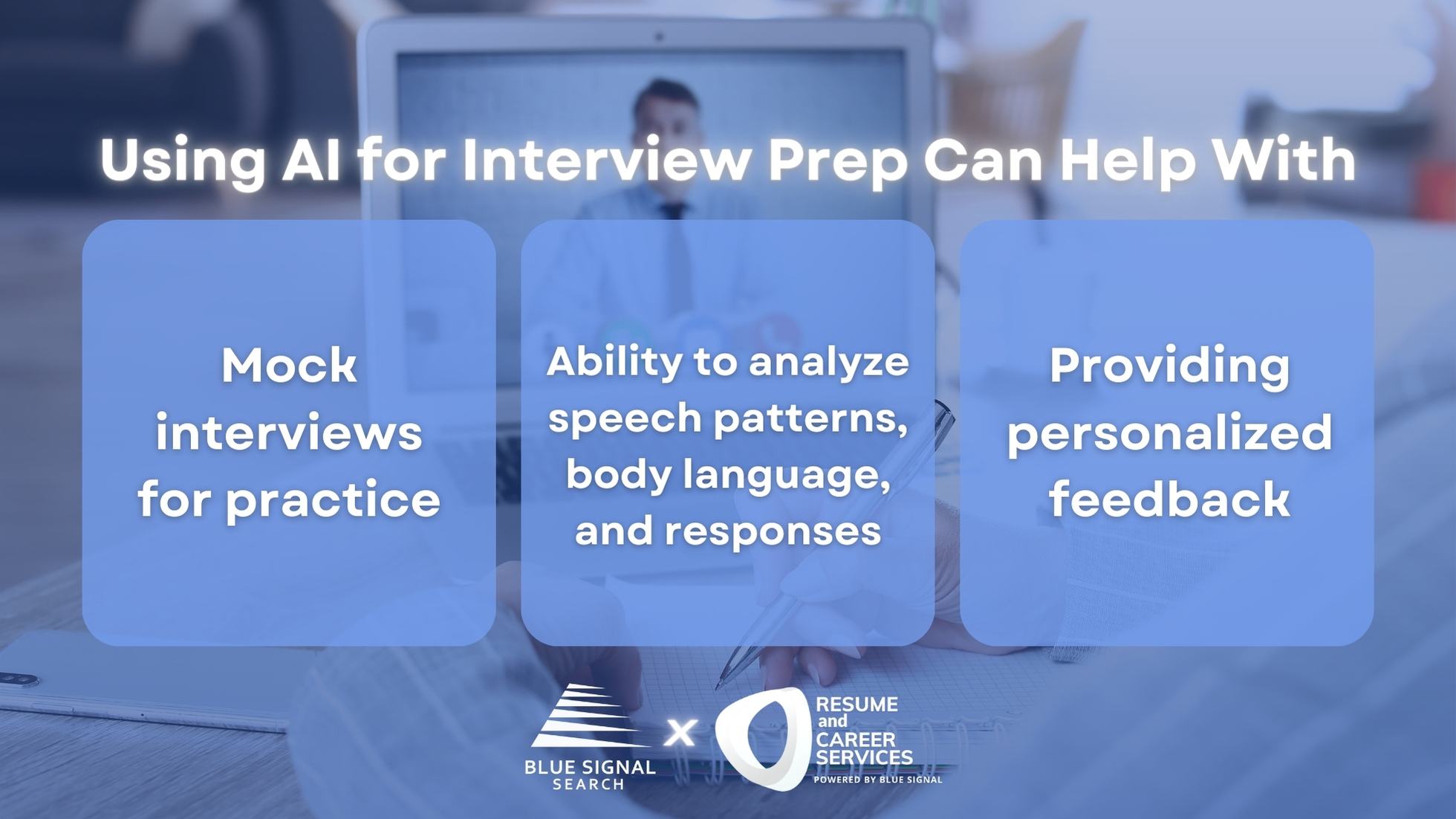
How to Tailor Your Interview Practice with AI
The unique advantage of AI-enabled interview coaching lies in its personalized approach. For instance, imagine a coach that adapts to your unique strengths and weaknesses, offering targeted advice on improving your responses. AI-driven interview platforms can analyze your speech patterns, body language, and responses to provide constructive feedback, much like a personal tutor.
Platforms like InterviewBuddy take this to the next level by offering AI-driven feedback on speech patterns and body language. They analyze elements like your tone, pace, and facial expressions, giving you a comprehensive review of your performance. This level of customization ensures that your practice sessions are focused, relevant, and impactful. It's a dynamic way to turn your weaknesses into strengths and capitalize on your natural communication style.
AI-Powered Mock Interviews and Real-Time Feedback
One of the most innovative applications of AI for interview preparation is the creation of realistic mock interview environments. AI algorithms can simulate various interview scenarios, from behavioral questions to technical discussions, providing a safe space for candidates to practice and receive real-time feedback.
This immediate, actionable insight is invaluable in fine-tuning your interview technique and boosting confidence. Tools like Big Interview and Orai are at the forefront of this innovation. Big Interview, for example, offers a wide range of mock interviews for different industries and roles, complete with AI feedback on your answers. Orai focuses more on the delivery aspect, helping you improve how you communicate your responses, ensuring you sound confident and clear.
The Challenges of AI for Interview Preparation
While AI offers immense benefits, it's important to be aware of its limitations. Over-reliance on AI tools can sometimes lead to a mechanical approach to interviews. As highlighted in a Harvard Business Review article, automated interviews can sometimes fall short in evaluating a candidate's emotional intelligence and other nuanced aspects of human interaction. The article points out that, while AI can effectively assess certain skills and competencies, it may not fully capture the depth of a candidate's interpersonal skills or cultural fit. Therefore, balancing AI practice with human interaction and feedback is essential for a well-rounded interview preparation strategy.
For those seeking a more personalized touch, our sister company, Resume and Career Services, offers expert guidance and a human approach to interview preparation. Their team of professionals can provide the nuanced feedback and personal interaction that AI tools may lack.
Furthermore, ethical considerations such as data privacy and the potential for algorithmic bias need to be addressed to ensure a fair and effective preparation process. To complement your AI-enhanced preparation, check out Resume and Career Services' YouTube channel, which is full of educational courses and resources on interview preparation. These resources can offer insights and tips to refine your interviewing skills further, ensuring you’re well-prepared for any interview scenario.
Conclusion: How Will AI Shape the Future of Interview Preparation?
In conclusion, AI for interview preparation is not just a technological trend; it's a transformative tool that's reshaping how job seekers approach one of the most crucial stages of their career journey. By embracing AI-powered tools, you can gain a competitive edge, refine your interviewing skills, and approach your next job interview with newfound confidence and insight.
However, it's equally important to remain aware of the challenges AI presents. While AI provides unparalleled advantages, being mindful of its potential biases and limitations ensures a balanced approach to your preparation. As the job market continues to evolve, AI stands as a powerful ally, but it should be used in conjunction with critical thinking and human judgment. This dual approach will guide you towards success in your career aspirations, helping you navigate the complexities of modern job interviews with both technology and wisdom at your side.
Work with Resume and Career Services
Ready to take your career journey to the next level? Resume and Career Services is here to help. Our expert team offers personalized guidance and support, ensuring you present your best self to potential employers. They specialize in crafting standout resumes, providing impactful career coaching, and delivering practical advice for every step of your job search. By combining our human expertise with the latest industry insights, we empower you to achieve your career goals with confidence. Don't let the complexities of the job market hold you back. Reach out to Resume and Career Services today and embark on your path to career success. Let's make your professional aspirations a reality!
Partner with us for your next hire.
Set up a free consultation with a recruiting manager. Tell us about your hiring need.
By submitting this form, you consent to receive communications from Blue Signal, including phone calls, emails, and text messages.
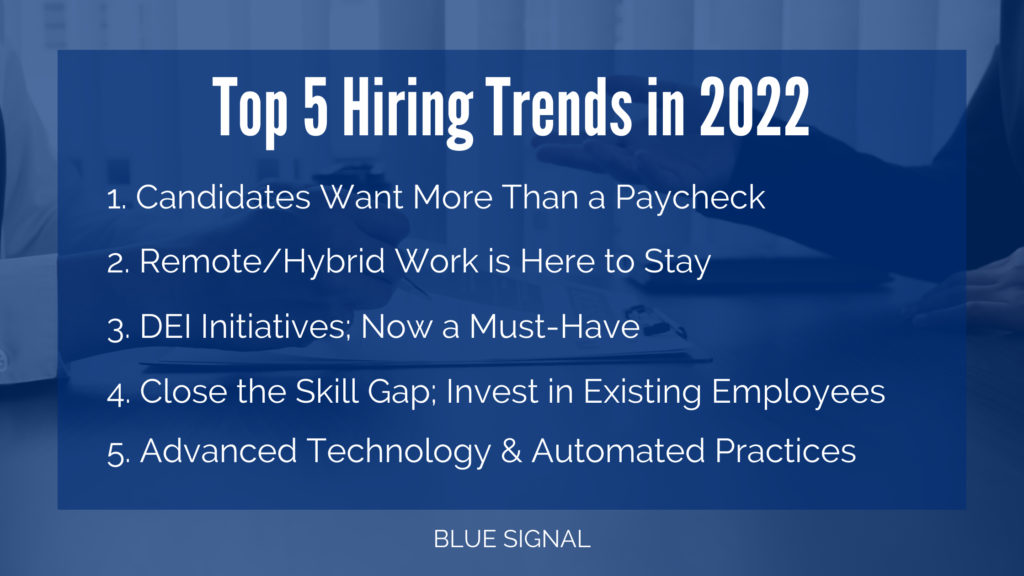
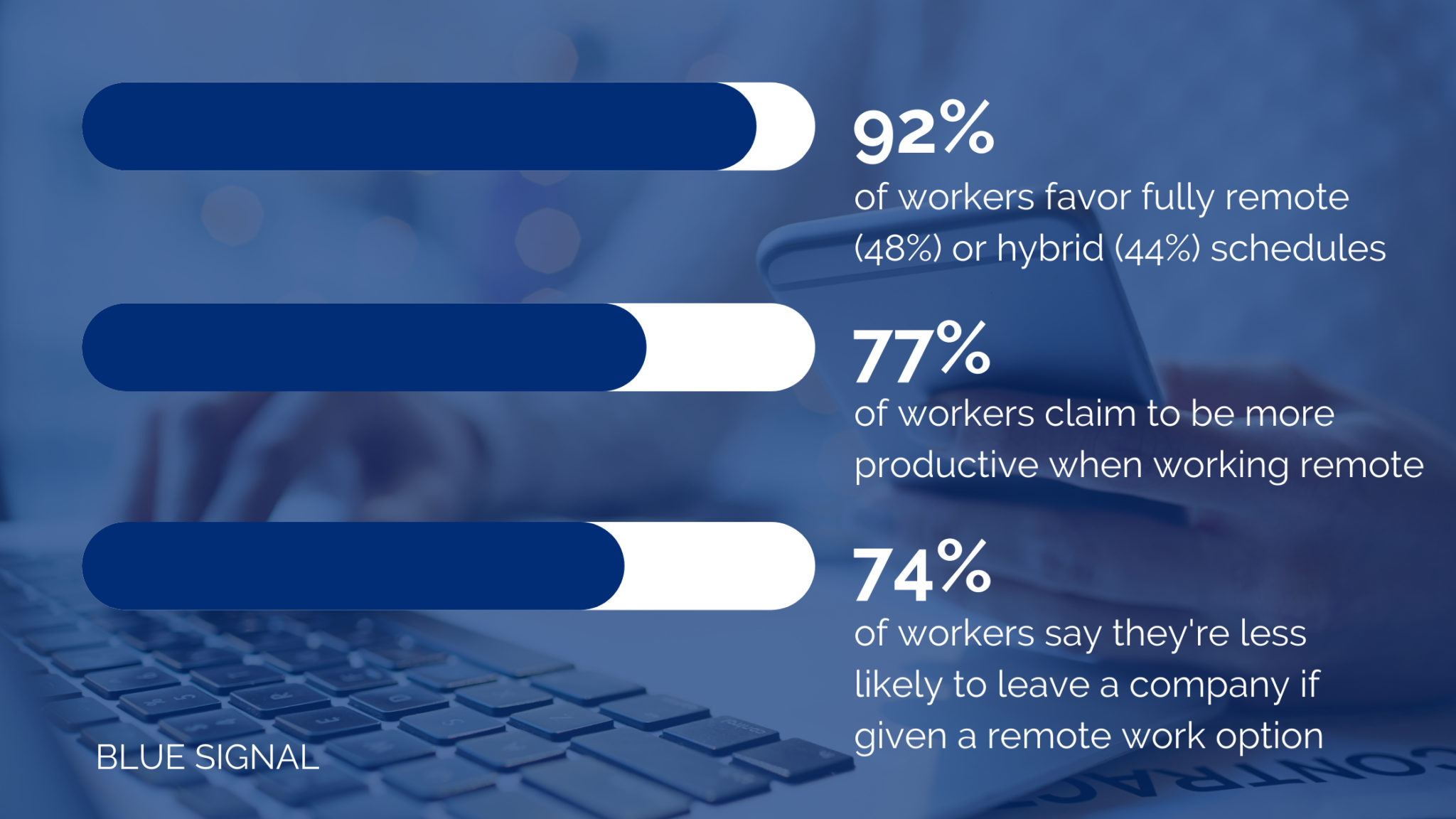
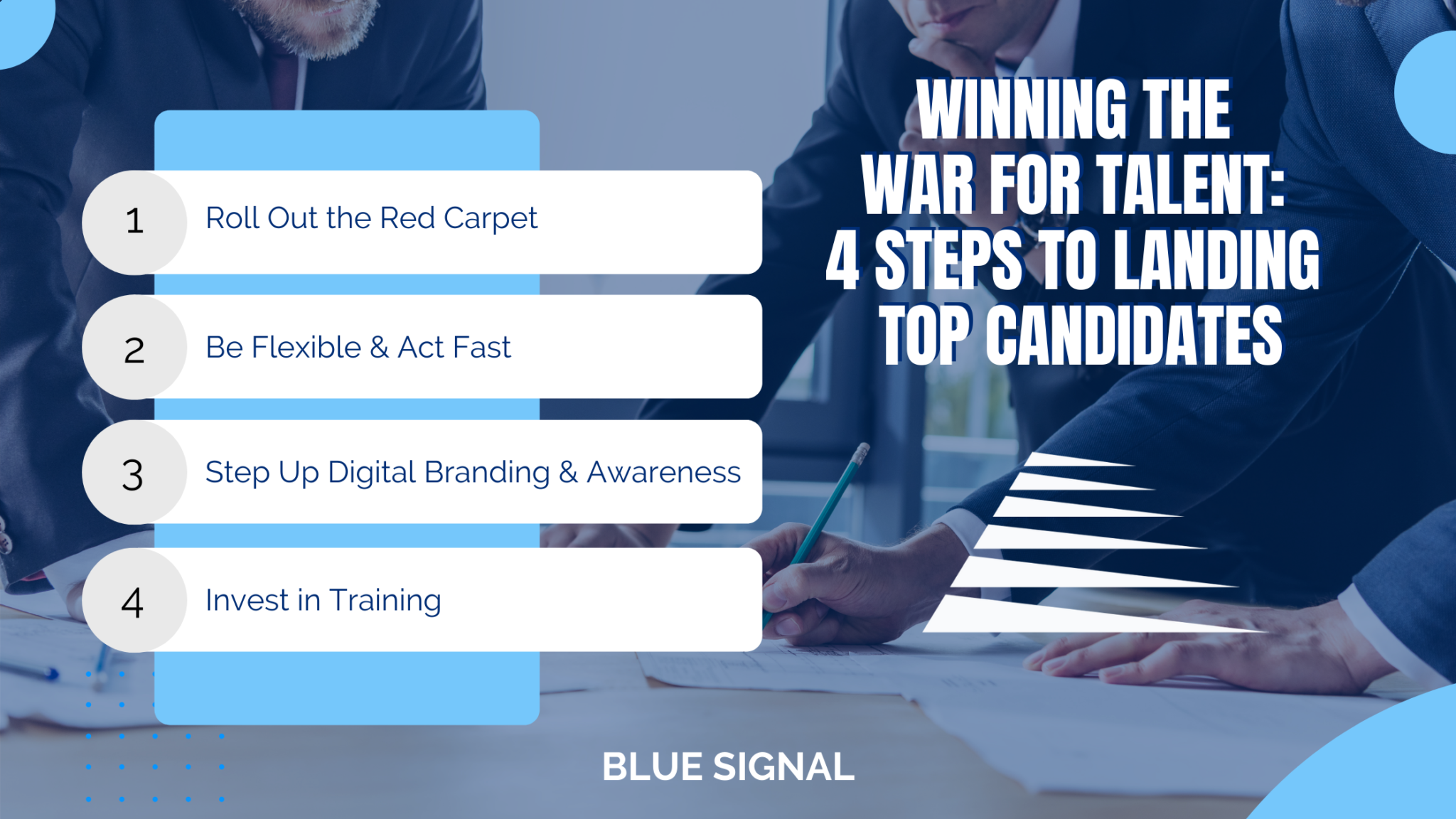
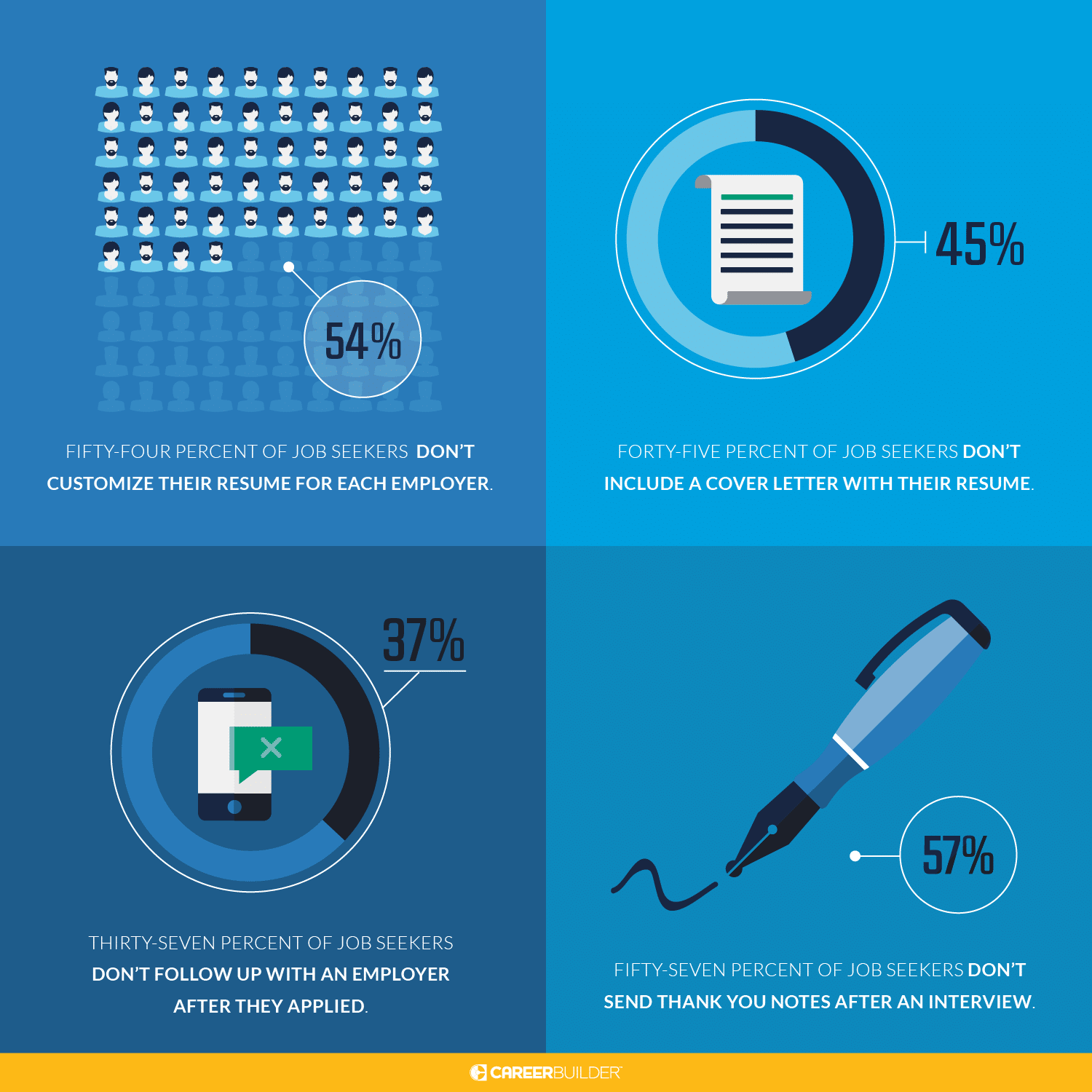
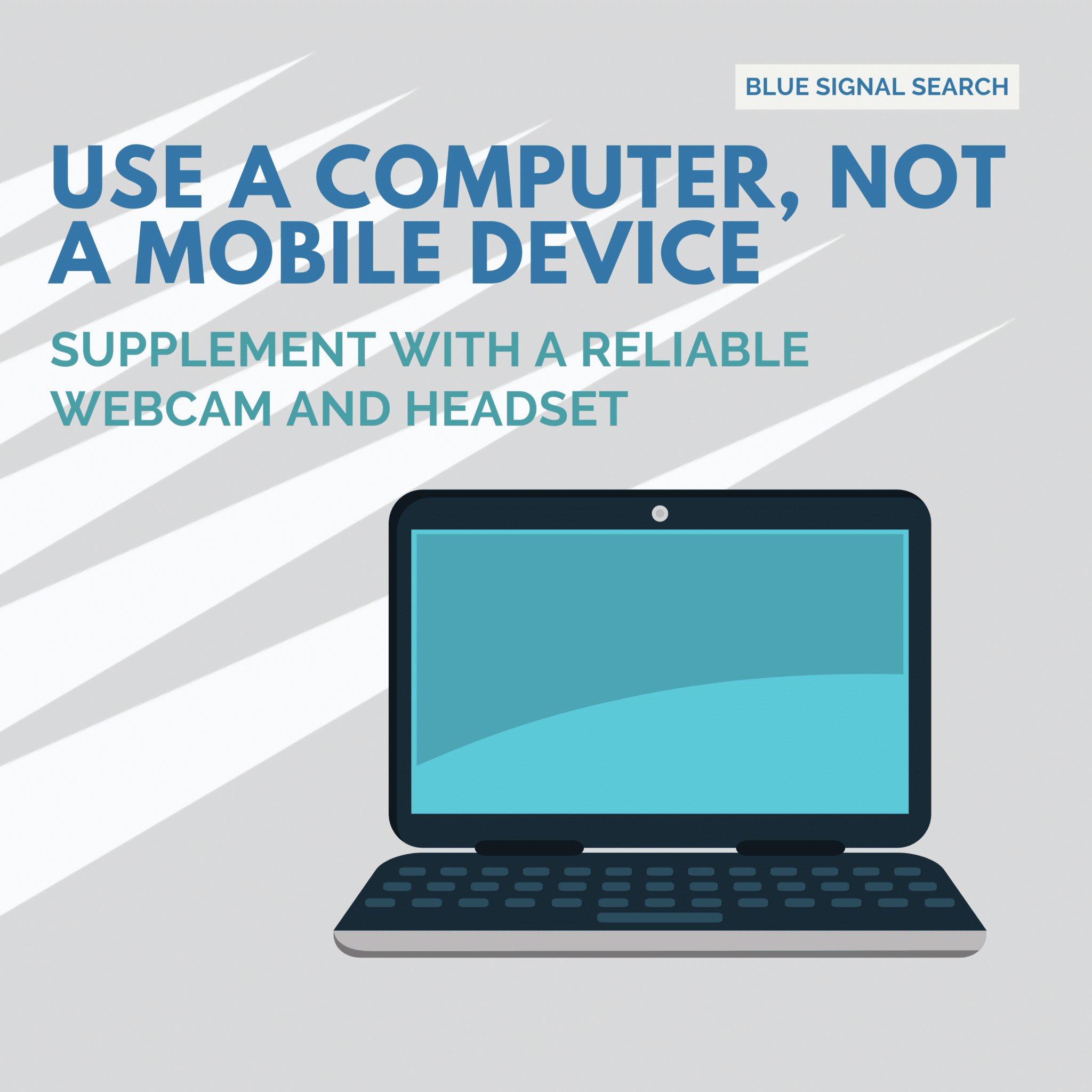
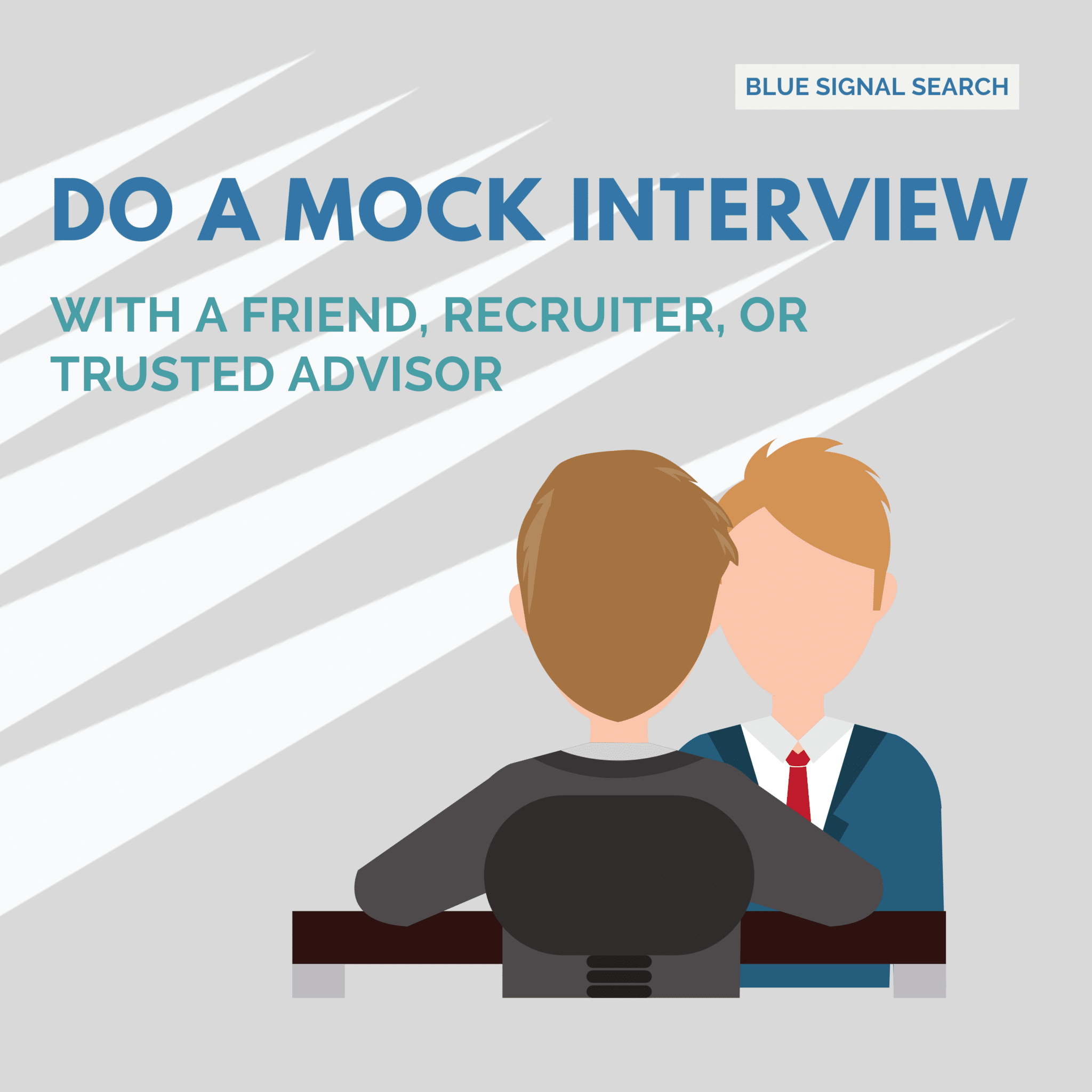

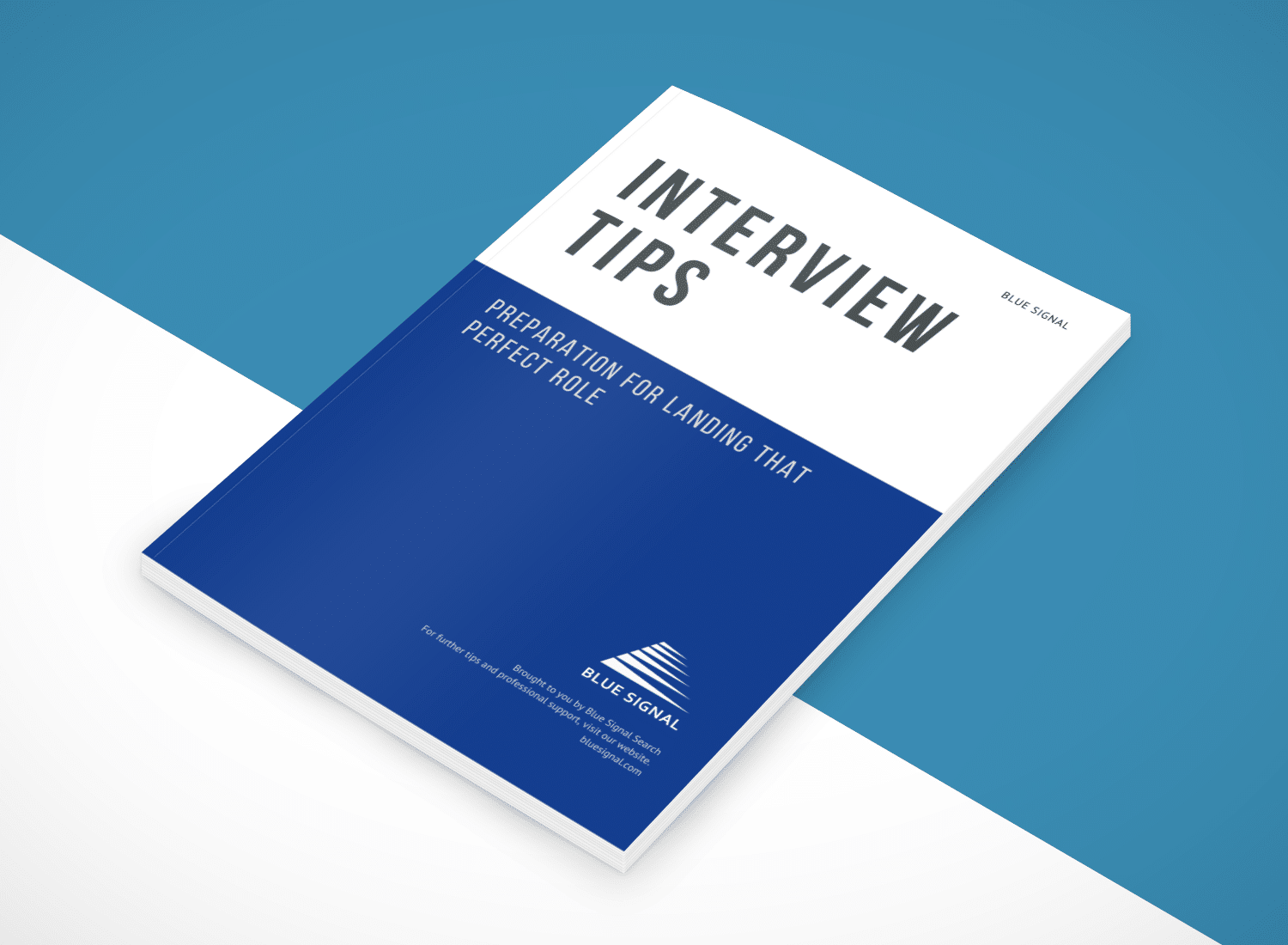



 “Tell me about some of your key metrics.”
“Tell me about some of your key metrics.”
 When they arrive, offer them bottled water, coffee, or tea. Instead of having the receptionist send them to find the office through an unfamiliar building, walk down to meet them personally. Make pleasant small talk on the way up to the office, and compliment them on something. The interview should be in an office or private conference room, and all devices should be switched off or silenced. Have their resume printed out and a notepad ready for jotting down a few notes.
When they arrive, offer them bottled water, coffee, or tea. Instead of having the receptionist send them to find the office through an unfamiliar building, walk down to meet them personally. Make pleasant small talk on the way up to the office, and compliment them on something. The interview should be in an office or private conference room, and all devices should be switched off or silenced. Have their resume printed out and a notepad ready for jotting down a few notes.

